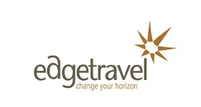|
In Africa, those of us in the tourism industry are certainly kept on our toes! It is hard to stay abreast of all the rules, regulations, changes, updates that just keep on coming. I suppose it is to be expected from what is still a relatively young industry. We live in the hope that logic will prevail! Here is a list of recent regional travel updates we feel are important to convey. Some are good, some are unfortunate and some well ...... I reserve comment for now:)
Please mail us to let us know if you find this kind of information useful and whether we should make this a regular post at: [email protected] KENYA / TANZANIA MEETING TO DISCUSS TOURISM RIFT SCHEDULED Officials from Kenya and Tanzania will meet on March 31 to discuss a bilateral agreement that prohibits tour operators from each country accessing the other country’s tourism attractions and airports, Dr Joyce Mapunjo, the Permanent Secretary for East African Cooperation Ministry, has advised. The rift between the two countries has been on-going for a number of months. In December last year, an agreement seemed to have been reached when Kenya’s Tourism Cabinet Secretary, Phyllis Kandie, agreed to temporarily lift the ban while awaiting negotiations with Tanzania in the beginning of February. However, in the absence of communication from Tanzania, Kandie reinstated the ban on February 6. In reply, East African Cooperation Minister, Harrison Mwakyembe, told a news conference in Dar es Salaam that Tanzania would inform all tourists to use airports other than Jomo Kenyatta International Airport (JKIA) in Nairobi for the time being to avoid any inconvenience. However, tour operators don’t foresee the rift between the two countries impacting on tourism. A spokesperson for the Tanzanian Association of Tour Operators told Tourism Update that although the situation was unfortunate, it was business as usual between Tanzania and Kenya. “Tour operators can still bring tourists to Nairobi or other towns in Kenya, only not to the airport,” she said. Lance Zackey, Rove Africa, adds that most clients tend to opt for fly-in packages, especially when they see the cost, issues and time involved in cross-border travel between Tanzania and Kenya. “Kenya needs to wake up to the fact that tourism to the destination is still not great and that it is still getting over the issues they faced last year. Putting restrictions in place such as this means that clients are going to skip Kenya altogether and go with the easiest and least expensive option of then flying into and out of Tanzania either via NBO or directly into DAR or JRO.” - we will keep you posted SOUTH AFRICA NEW HAND LUGGAGE REGULATIONS Airports Company South Africa and airlines will roll out a campaign from February 2 at all SA airports to enforce hand luggage regulations. The campaign will inform and educate passengers and travel agents about the prescribed restrictions and the impact on travellers. The hand luggage allowance is as follows: Economy-class passengers are allowed one bag plus one slimline laptop bag. Business/ first-class passengers are allowed two bags plus one slimline laptop bag. Handbags are considered part of a female’s wardrobe and not as hand luggage. Slimline laptop bags must be of a size and thickness specifically designed to carry a laptop and charger. Bags capable of carrying other items such as documents and clothes are not permitted. No bag should exceed 56cm x 36cm x 23cm (total dimensions of 115cm) or weigh more than 7kg per bag. Bag weight may vary according to airline specifications. If hand baggage does not comply, the passenger will be referred back to the check-in counters to check in the baggage as hold baggage. Extra fees may apply, as per each airline’s guidelines. The enforcement of this programme will be led by airlines operating at Acsa airports and supported by the South African Civil Aviation Authority. CHILD POLICY AND UNABRIDGED BIRTH CERTIFICATE A new immigration law is coming into effect on 1 June 2015. Please note that this law was originally meant to come into effect on 1 October 2014, however, after engaging stakeholders on the matter, the Department has granted the postponement of the two particular requirements -- the unabridged birth certificate and written permission, to 1 June 2015. Under the new law, all minors (children under the age of 18 years) will be required to produce, in addition to their passport, an Unabridged Birth Certificate (showing the particulars of both parents) when exiting and entering South African ports of entry. Why is it happening? This is being done to curb human trafficking. According to the Department of Home Affairs, 30 000 minors are trafficked through South African borders every year. 50% of these minors are under the age of 14. When the new immigration regulation comes into effect on 01/06/2015, it will be the responsibility of passengers to ensure their children have the correct documentation or risk being denied boarding. The new law will be enforced by airlines and immigration officials across the board (land, sea and air) Although airlines and travel agents are doing everything to keep passengers informed, ultimately it will be passengers’ responsibility to know what is required of them. In all cases an Unabridged Birth Certificate will be required for minors departing and arriving in South Africa ... they will not be allowed to travel without it. In cases where the Unabridged Birth Certificate is in a language other than English, it must be accompanied by a sworn translation issued by a competent authority in the country concerned. Children travelling with only one parent When a child travels with only one parent, additional documents should include an affidavit in which the absent parent gives consent for the child to travel, a court order granting full parental responsibilities or legal guardianship of the child, or the death certificate of the absent parent. The affidavit should be no more than 3 months old from date of travel. ZAMBIA NO YELLOW FEVER VACCINATION REQUIRED Following an announcement at the World Health Assembly in Geneva on Friday 30th January 2015, the SA Minister of Health, Dr Aaron Motsoaledi, removed the requirement for proof of Yellow Fever vaccination for travellers between Zambia and South Africa, with effect 31 January 2015. BETTER FLIGHT ACCESS Proflight Zambia and South Africa Airways (SAA) have signed an interline agreement that will enable passengers to travel easily across the networks of both airlines with a single booking. Under the agreement, customers will be able to make joint Proflight Zambia-SAA bookings and will be issued with a single combined ticket. This will enable seamless connections to and from Proflight’s domestic destinations: Lusaka, Ndola, Livingstone, Mfuwe, Solwezi, Kasama, Lower Zambezi, as well as its two international routes, Lilongwe in Malawi and Lubumbashi in the Democratic Republic of Congo. It will enable Proflight customers to book flights to 57 destinations within the SAA network, and for passengers to travel more easily to provincial destinations throughout Zambia. ZIMBABWE VAT INTRODUCED The Zimbabwean government announced on January 19 that it would start levying VAT on tourism with immediate effect. The tax applies to payments for accommodation by foreign visitors to Zimbabwe. The new Statutory Instrument was gazetted late on Friday, January 16, and publicly announced on Monday. Tourism Update reported on Tuesday morning that VAT had not been passed, but it was passed subsequently and is now in effect. All bookings made prior to the announcement are to be kept at the old rate. KAZA VISA The new Zimbabwe / Zambia Kaza Uni-Visa was laiunchedon the 28th November 2014 The Governments of the Republics of Zambia and Zimbabwe are pleased to announce the launch of the Kavango Zambezi Trans-Frontier Conservation Area (KAZA) UNIVISA on 28 November, 2014. The KAZA UNIVISA is a common tourist visa for the SADC region which shall be piloted by Zambia and Zimbabwe for six (6) months. After the pilot period, the UNIVISA is intended to be rolled out to three (3) other countries in the KAZA region – namely Angola, Botswana and Namibia. More countries in the SADC region are expected to join in the UNIVISA initiative at the later phase. During the launch on Friday the 28th of November the Zimbabwe / Zambia border crossing (between Vic Falls and Livingstone) shall be closed from 06h00 to14h30 (Please note that should your guests be affected by this closure, Wild Horizons will contact you directly). The UNIVISA will be effective once the border re-opens and will be administered at eight (8) ports of entry as follows: The UNIVISA will be issued at a standard fee of US$50 – where credit card point of sale facilities are not available at port of entry it is recommended that clients have US$50 available for payment. Validity – the KAZA UNIVISA will be valid for 30 days as long as you remain in Zimbabwe and Zambia and clients can cross into Zimbabwe/Zambia as frequently as they like within the 30 day period. (If the UNIVISA is obtained at Victoria Falls and you cross over to Zimbabwe at Kariba or Chirundu or vice versa the visa shall be valid) It also covers those who visit Botswana for day trips through the Kazangula Borders – it will not be valid if staying in Botswana overnight, in this case you would need to purchase a new Visa. The UNIVISA cannot be extended however you can buy a new UNIVISA (up to 3 per year). Eligble Countries: Citizens from 40 countries listed below shall be eligible for the KAZA UNIVISA obtainable at the eight (8) ports of entry as stated above. Argentina Japan Austria Liechtenstein Australia Luxembourg Belgium Monaco Brazil Netherlands Britain (UK) New Zealand Brunei Norway Burundi Poland Canada Portugal Cook Islands Puerto Rico Czech Republic Russia Denmark Rwanda Finland Slovakia Republic France Slovenia Republic Germany Spain Greece Sweden Hungary Switzerland Iceland UAE Israel Uruguay Italy USA Clients will be directed to the dedicated counter where the special visa shall be issued – the visa is for holiday purposes only and not for business purposes. If someone wants to enter Zambia or Zimbabwe whose Nationality is not listed above then normal (current) specific Zambia /Zimbabwe visa / entry requirements apply. All current visa processes for both countries are still available and in operation however generally the UNIVISA will be more cost effective & efficient for a tourists requirements. Please note during this pilot phase clients entering from Namibia, Malawi and other Botswana borders will not be able to purchase the Univisa – the Univisa is ONLY available at the 8 ports of entry previously mentioned. EBOLA UPDATE NO NEW CASES OF REPORTED IN LIBERIA 9 March 2015 - No new confirmed cases of Ebola were reported last week for the first time since May 26, 2014, WHO announced. During the week, 277 samples were tested by the five operational laboratories in Liberia and none of them came back with positive results for Ebola. If the country passed through the requisite 42 days with no new cases reported, the end to Ebola transmission could be declared, said WHO.
0 Comments
|
AuthorBorn and raised in Cape Town South Africa. My passion is sharing Africa through tailor making travel experiences Archives
November 2020
Categories |

 RSS Feed
RSS Feed
